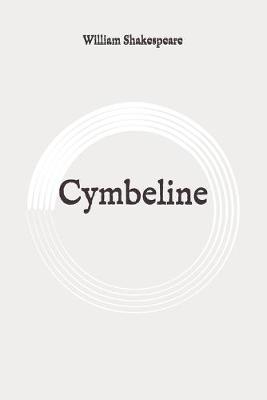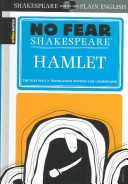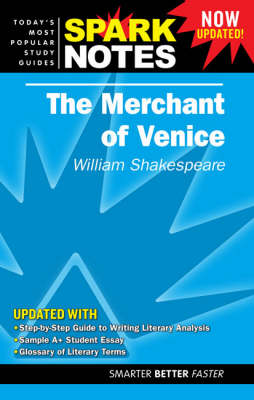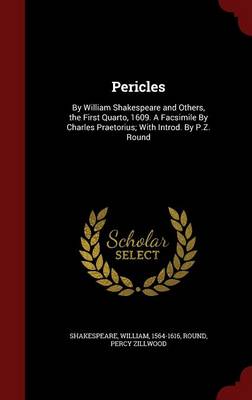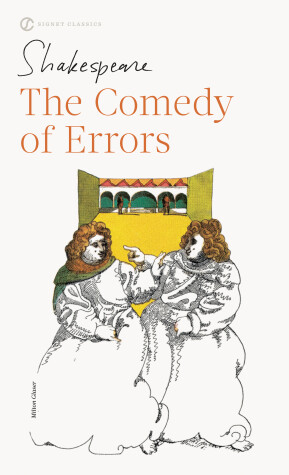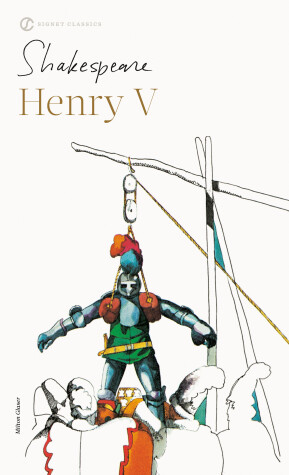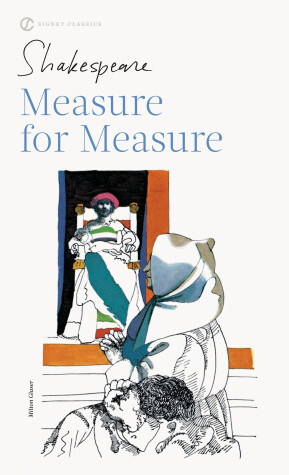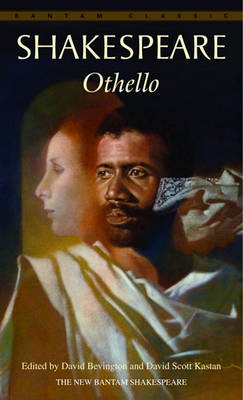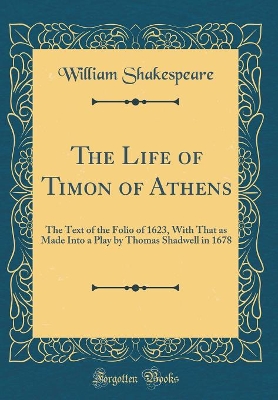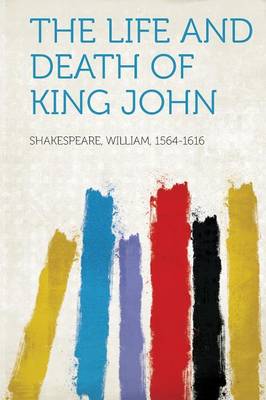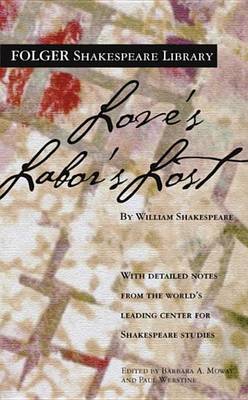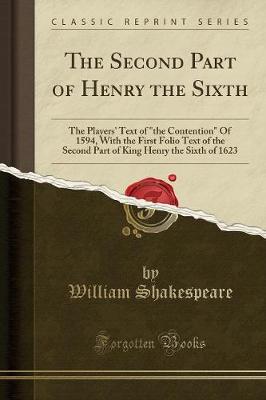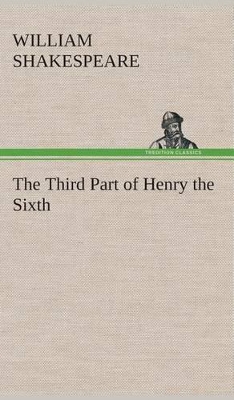The Pelican Shakespeare
20 total works
This revised Signet Classics edition includes unique features such as:
• An overview of Shakespeare's life, world, and theater
• A special introduction to the play by the editor, John Russell Brown
• Selections from Raphael Holinshed's Chronicles of England, Scotland, and Ireland, the source from which Shakespeare derived Henry V
• Dramatic criticism from William Hazlitt, W. B. Yeats, E.M.W. Tillyard, and others
• A comprehensive stage and screen history of notable actors, directors, and productions
• Text, notes, and commentaries printed in the clearest, most readable text
• And more...
The Folio is the source of all other editions. The Folio text forces us to re-examine the assumptions and prejudices which have encumbered over four hundred years of scholarship and performance. Notes refer the reader to subsequent editorial interventions, and offer the reader a multiplicity of interpretations. Notes also advise the reader on variations between Folios and Quartos.
The heavy mascara of four centuries of Shakespearean glossing has by now glossed over the original countenance of Shakespeare's work. Never has there been a Folio available in modern reading fonts. While other complete Folio editions continue to trade simply on the facsimile appearance of the Elizabethan "look " none of them is easily and practically utilized in general Shakespeare studies or performances.
- The exact text of the printed book for easy cross-reference
- Hundreds of hypertext links for instant navigation
- Freshly edited text based on the best early printed version of the play
- Full explanatory notes conveniently placed on pages facing the text of the play
- Scene-by-scene plot summaries
- A key to famous lines and phrases
- An introduction to reading Shakespeare's language
- Illustrations from the Folger Shakespeare Library's vast holdings of rare books
- An essay by a leading Shakespeare scholar providing a modern perspective on the play
The legendary Pelican Shakespeare series features authoritative and meticulously researched texts paired with scholarship by renowned Shakespeareans. Each book includes an essay on the theatrical world of Shakespeare’s time, an introduction to the individual play, and a detailed note on the text used. Updated by general editors Stephen Orgel and A. R. Braunmuller, these easy-to-read editions incorporate over thirty years of Shakespeare scholarship undertaken since the original series, edited by Alfred Harbage, appeared between 1956 and 1967. With definitive texts and illuminating essays, the Pelican Shakespeare will remain a valued resource for students, teachers, and theater professionals for many years to come.
For more than seventy years, Penguin has been the leading publisher of classic literature in the English-speaking world. With more than 1,700 titles, Penguin Classics represents a global bookshelf of the best works throughout history and across genres and disciplines. Readers trust the series to provide authoritative texts enhanced by introductions and notes by distinguished scholars and contemporary authors, as well as up-to-date translations by award-winning translators.
The Folio is the source of all other editions. The Folio text forces us to re-examine the assumptions and prejudices which have encumbered over four hundred years of scholarship and performance. Notes refer the reader to subsequent editorial interventions, and offer the reader a multiplicity of interpretations. Notes also advise the reader on variations between Folios and Quartos.
The heavy mascara of four centuries of Shakespearean glossing has by now glossed over the original countenance of Shakespeare's work. Never has there been a Folio available in modern reading fonts. While other complete Folio editions continue to trade simply on the facsimile appearance of the Elizabethan "look " none of them is easily and practically utilized in general Shakespeare studies or performances.
The legendary Pelican Shakespeare series features authoritative and meticulously researched texts paired with scholarship by renowned Shakespeareans. Each book includes an essay on the theatrical world of Shakespeare’s time, an introduction to the individual play, and a detailed note on the text used. Updated by general editors Stephen Orgel and A. R. Braunmuller, these easy-to-read editions incorporate over thirty years of Shakespeare scholarship undertaken since the original series, edited by Alfred Harbage, appeared between 1956 and 1967. With definitive texts and illuminating essays, the Pelican Shakespeare will remain a valued resource for students, teachers, and theater professionals for many years to come.
For more than seventy years, Penguin has been the leading publisher of classic literature in the English-speaking world. With more than 1,700 titles, Penguin Classics represents a global bookshelf of the best works throughout history and across genres and disciplines. Readers trust the series to provide authoritative texts enhanced by introductions and notes by distinguished scholars and contemporary authors, as well as up-to-date translations by award-winning translators.
At first glance, Shakespeare’s early comedy Love’s Labor’s Lost simply entertains and amuses. Four young men (one of them a king) withdraw from the world for three years, taking an oath that they will have nothing to do with women. The King of Navarre soon learns, however, that the Princess of France and her ladies are about to arrive. Although he lodges them outside of his court, all four men fall in love with the ladies, abandoning their oaths and setting out to win their hands.
The laughter triggered by this story is augmented by subplots involving a braggart soldier, a clever page, illiterate servants, a parson, a schoolmaster, and a constable so dull that he is named Dull. Letters and poems are misdelivered, confessions are overheard, entertainments are presented, and language is played with, and misused, by the ignorant and learned alike.
At a deeper level, Love’s Labor’s Lost also teases the mind. The men begin with the premise that women either are seductresses or goddesses. The play soon makes it clear, however, that the reality of male-female relations is different. That women are not identical to men’s images of them is a common theme in Shakespeare’s plays. In Love’s Labor’s Lost it receives one of its most pressing examinations.
This edition includes:
-Freshly edited text based on the best early printed version of the play
-Full explanatory notes conveniently placed on pages facing the text of the play
-Scene-by-scene plot summaries
-A key to the play’s famous lines and phrases
-An introduction to reading Shakespeare’s language
-An essay by a leading Shakespeare scholar providing a modern perspective on the play
-Fresh images from the Folger Shakespeare Library’s vast holdings of rare books
-An annotated guide to further reading
Essay by William C. Carroll
The Folger Shakespeare Library in Washington, DC, is home to the world’s largest collection of Shakespeare’s printed works, and a magnet for Shakespeare scholars from around the globe. In addition to exhibitions open to the public throughout the year, the Folger offers a full calendar of performances and programs. For more information, visit Folger.edu.
The Folio is the source of all other editions. The Folio text forces us to re-examine the assumptions and prejudices which have encumbered over four hundred years of scholarship and performance. Notes refer the reader to subsequent editorial interventions, and offer the reader a multiplicity of interpretations. Notes also advise the reader on variations between Folios and Quartos.
The heavy mascara of four centuries of Shakespearean glossing has by now glossed over the original countenance of Shakespeare's work. Never has there been a Folio available in modern reading fonts. While other complete Folio editions continue to trade simply on the facsimile appearance of the Elizabethan "look " none of them is easily and practically utilized in general Shakespeare studies or performances.
The legendary Pelican Shakespeare series features authoritative and meticulously researched texts paired with scholarship by renowned Shakespeareans. Each book includes an essay on the theatrical world of Shakespeare’s time, an introduction to the individual play, and a detailed note on the text used. Updated by general editors Stephen Orgel and A. R. Braunmuller, these easy-to-read editions incorporate over thirty years of Shakespeare scholarship undertaken since the original series, edited by Alfred Harbage, appeared between 1956 and 1967. With definitive texts and illuminating essays, the Pelican Shakespeare will remain a valued resource for students, teachers, and theater professionals for many years to come.
For more than seventy years, Penguin has been the leading publisher of classic literature in the English-speaking world. With more than 1,700 titles, Penguin Classics represents a global bookshelf of the best works throughout history and across genres and disciplines. Readers trust the series to provide authoritative texts enhanced by introductions and notes by distinguished scholars and contemporary authors, as well as up-to-date translations by award-winning translators.
